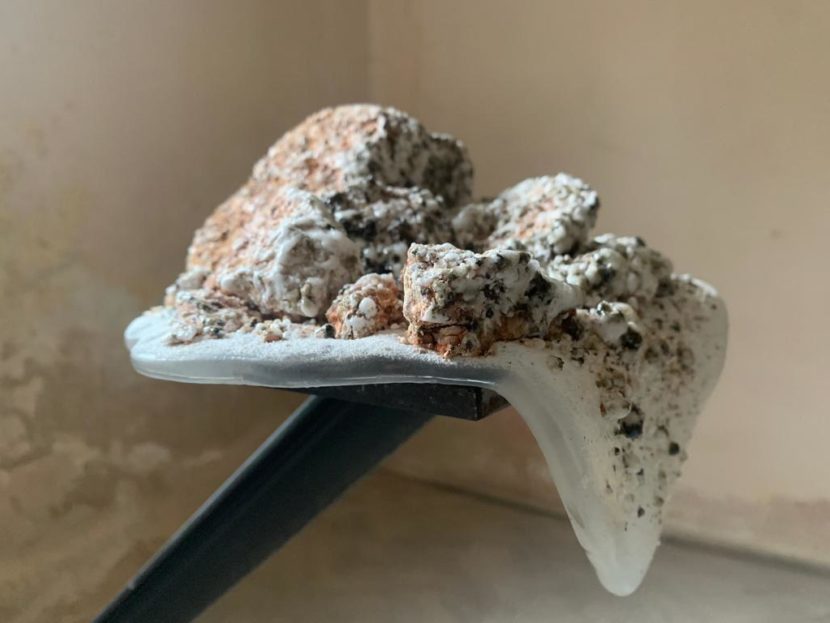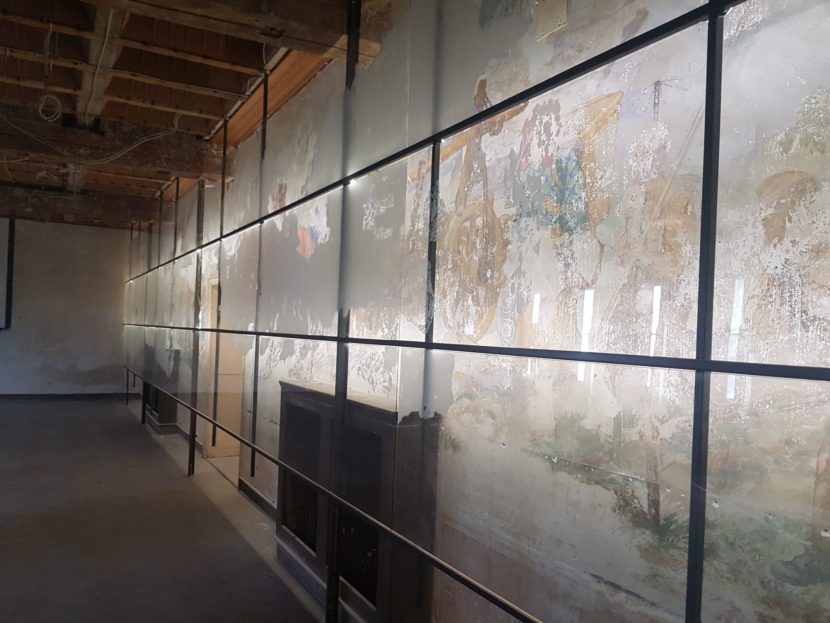Talya Lubinsky: Melting Stone
This project is the first artist-in-residence and exhibition collaboration between the Flossenbürg Concentration Camp Memorial and the Iwalewahaus at the University of Bayreuth.
Talya Lubinsky's exhibition Melting Stone is an artistic dialogue with the Flossenbürg Concentration Camp Memorial. The two site-specific installations explore historical narratives in the intermediate realm of materiality and abstraction. The South African artist's exhibition is housed in a disused building that once housed the offices of Deutsche Erd- und Steinwerke, an SS-owned company that managed the adjacent granite quarry. With her work, the artist takes the geological-historical significance of granite and glass as a starting point to interrogate commemorative cultures.
Granite was and is mined in Flossenbürg. Once flowing as lava 30 km underground, granite was pushed to the surface by continental drift. Over millions of years, layers of earth eroded, the lava cooled and crystallized into what can be seen today as solidified matter in the form of granite. Talya Lubinsky, who has already presented her exhibition Floating Bodies at the Iwalewahaus, experiments in her sculpture series "Melting Stone" with heating the stones to the point where they begin to melt. The life cycle of the stone thus becomes visible. The solid material of stone, usually associated with mourning, commemoration and monumentalization, is transformed into a liquid substance that poetically uses latent power to metaphorically (re)connect with the magma within the earth. In this way, Talya Lubinsky finds new forms for the formation of memories, reflecting and criticizing the 'ossified matter' of hegemonic memory cultures.
Important information
July 15 - September 18, 2022
Daily 1.00 p.m. - 5.00 p.m.
In the DESt-building in the area of the former stone quarry, Wurmsteinweg 7, 92696 Flossenbürg
Admission free
"Sanding Glass," a large-scale work on and with glass, is installed in front of a 14-meter-long and 2.5-meter-high mural on the walls of the former "Gefolgschaftssaal" of the Deutsche Erd- und Steinwerke. Following the National Socialist ideology of the time, it depicts vigorous stonemasons and workers, painted in a fascist-realist style. In the decades following the liberation of the camp, the faces of the figures were intentionally removed; moreover, the paint has cracked and peeled off. Talya Lubinsky works those parts of the painting that are not rubbed, chipped or weathered on glass to make them opaque. Scratching the surface creates a new drawing that draws the eye to the contents of a story told through its absence.
Talya Lubinsky is from Johannesburg, South Africa, and currently lives in Berlin. Her solo exhibitions include Marble Dust, Künstlerhaus Bethanien, Berlin (2020), Floating Bodies, Iwalewahaus, Bayreuth, (2017) and If we burn, there is ash, Wits Anthropology Museum, Johannesburg (2016). Lubinsky received an MFA with distinction from the University of Witwatersrand, Johannesburg.

